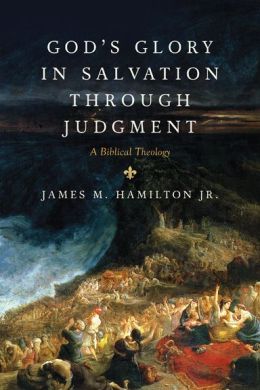
In Exodus 34 Moses asks to see God’s glory, and God reveals himself as a God who is merciful and just. James Hamilton Jr. contends that from this passage comes a biblical theology that unites the meta-narrative of Scripture under one central theme: God’s glory in salvation through judgement.
Hamilton begins in the Old Testament by showing that Israel was saved through God’s judgement on the Egyptians and the Caananites. God was glorified through both his judgement and mercy, accorded in salvation to Israel. The New Testament unfolds the ultimate display of God’s glory in justice and mercy, as it was God’s righteous judgement shown on the cross that brought us salvation. God’s glory in salvation through judgement will be shown at the end of time, when Christ returns to judge his enemies and save all who have called on his name.
Hamilton moves through the Bible book by book, showing that there is one theological centre to the whole Bible. The volume’s systematic method and scope make it a unique resource for pastors, professors, and students.
Hamilton begins in the Old Testament by showing that Israel was saved through God’s judgement on the Egyptians and the Caananites. God was glorified through both his judgement and mercy, accorded in salvation to Israel. The New Testament unfolds the ultimate display of God’s glory in justice and mercy, as it was God’s righteous judgement shown on the cross that brought us salvation. God’s glory in salvation through judgement will be shown at the end of time, when Christ returns to judge his enemies and save all who have called on his name.
Hamilton moves through the Bible book by book, showing that there is one theological centre to the whole Bible. The volume’s systematic method and scope make it a unique resource for pastors, professors, and students.



